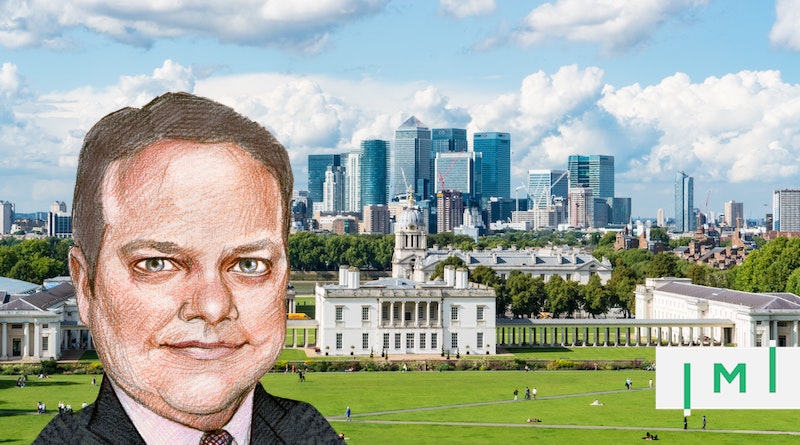10 On The Weekend – James Swenson: Compliance Becoming a “Box-Ticking” Exercise
Ten On The Weekend is a weekly feature on IMI, the concept of which is simple: Each weekend, we ask the same ten questions of a different industry figure, letting readers get to know the interviewee on a more personal and informal level than they might in an ordinary business setting.
This weekend’s guest is James Swenson of Exiger Diligence.
How do you spend your weekends?
I probably would have given you a very different answer five months ago! During the pandemic, I have been trying to explore parts of London I have not previously visited, like Dulwich Park, the Mayfield Lavender Farm, and even the cycling paths near my house. While restaurants, bars, and travel have been sorely missed, these have probably been some of the most relaxing weekends I’ve had in years.
What are your top three business goals this year?
- I would like to continue being an outspoken advocate for more widespread and in-depth due diligence in the industry. While we have made important strides at recognizing the importance of applicant vetting, recent developments like the “Cyprus Papers” will continue to invite criticism to the industry.
- We need all residency schemes, especially the often-scrutinized golden visa programmes in Western Europe (Spain, Portugal, Greece, etc) to adopt minimum standards of enhanced due diligence. Their lack of transparency around vetting practices will only continue to cast a dark shadow on the rest of the industry.
- I’ve spent the better part of this year building out a due diligence research centre in Bucharest and I hope to have a 100+ strong team by the of the year.
What’s your biggest business concern right now?
We seem to be transitioning toward the commoditization of due diligence and compliance across numerous industries. While regulatory actions result in more and more industries incorporating due diligence into their processes, I have witnessed compliance becoming more of a “box ticking” exercise. In order for due diligence to be an effective means of managing financial crime and preserving integrity, the question needs to evolve from “do you do due diligence?” to “how do you rely on due diligence to make informed decisions?”
Which book is on your night-stand right now?
El Narco: Inside Mexico’s Criminal Insurgency by Ioan Grillo. As the son of a diplomat, I spent a great deal of my childhood in Latin America and graduated from high school in Mexico City. Last year, I went back for the first time in 20 years and have since developed a real obsession with reconnecting with a place that influenced me so much but has also changed so profoundly.
How and when did you first get into the investment migration industry?
I was in due diligence well before I got involved in investment migration. In 2011, I was working for a company called World-Check that was acquired by Thomson Reuters, which had previously acquired another due diligence firm that was working with some Caribbean programmes. To be honest, I had no idea investment migration even existed and as I became more involved in the execution of this type of due diligence, I found the industry much more fascinating than the run-of-the-mill due diligence I had normally worked on.
What was your proudest moment as a service provider?
Last year, together with the IMC, Exiger and two other service providers initiated a thought leadership exercise to advocate for minimum due diligence standards. It’s not every day you get to work alongside your competitors to try to map the direction of your service offering and I’m proud of the output of our recommendations.
Which investment migration market development has surprised you the most in the last year?
What has surprised me the most is actually the lack of certain developments in the industry. While many programmes have implemented and, in some cases, strengthened their due diligence, there are still dozens that are either opaque about their compliance controls or are frankly doing little to no due diligence. Without transparency around what due diligence is undertaken, external observers will continue to assume no serious due diligence is undertaken. As an industry, we need to set minimum standards and hold parties accountable for ensuring these are followed.
If you could go 10 years back in time, what business decision would you change?
Career-wise, I wouldn’t change anything; I have been blessed with the opportunity to travel the world, help customers solve complex problems, and build lasting relationships with fantastic colleagues.
What investment migration industry personality do you most admire?In an industry filled with so many innovators, it’s challenging to name a single person. However, one name that comes to mind is Peter Vincent. He is a friend and former colleague who really helped elevate the dialogue around the inherent risks this industry faces and he always supported me in advocating for increased due diligence.
If all goes according to plan, what will you be doing five years from now?
With Covid behind us, I will hopefully be on the road again, visiting old and new customers, and helping to make the world a safer place to do business.
Christian Henrik Nesheim is the founder and editor of Investment Migration Insider, the #1 magazine – online or offline – for residency and citizenship by investment. He is an internationally recognized expert, speaker, documentary producer, and writer on the subject of investment migration, whose work is cited in the Economist, Bloomberg, Fortune, Forbes, Newsweek, and Business Insider. Norwegian by birth, Christian has spent the last 16 years in the United States, China, Spain, and Portugal.



